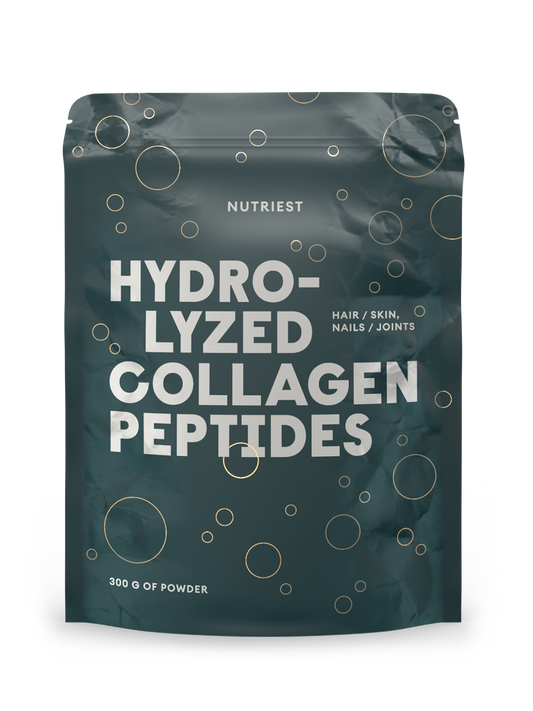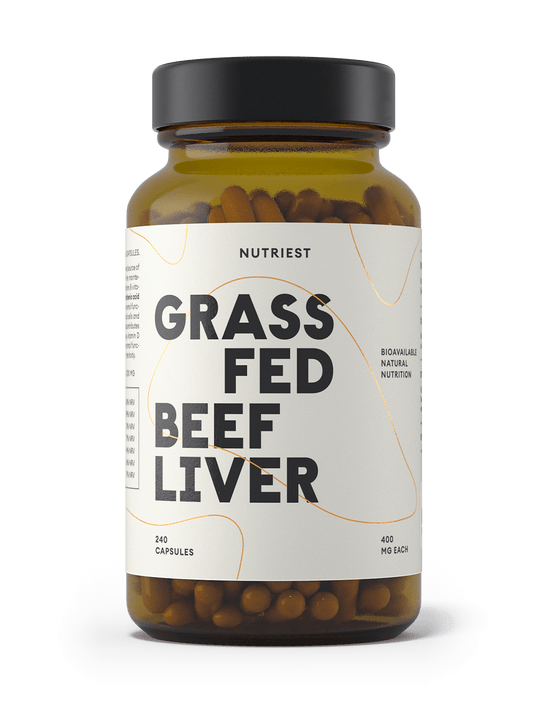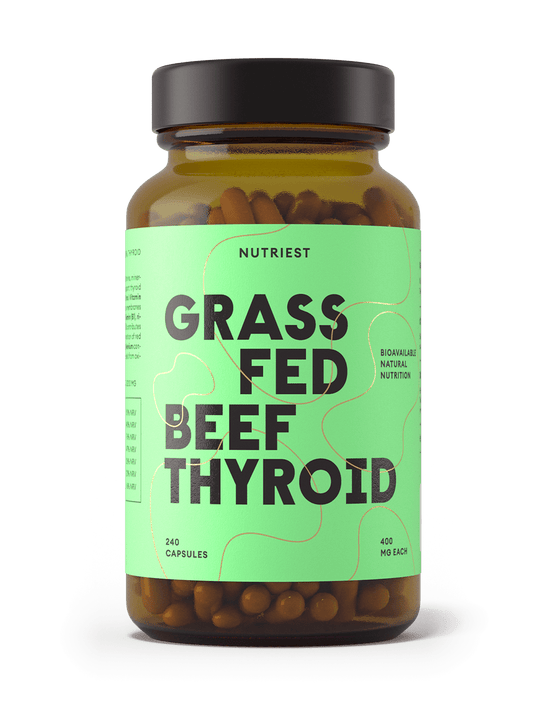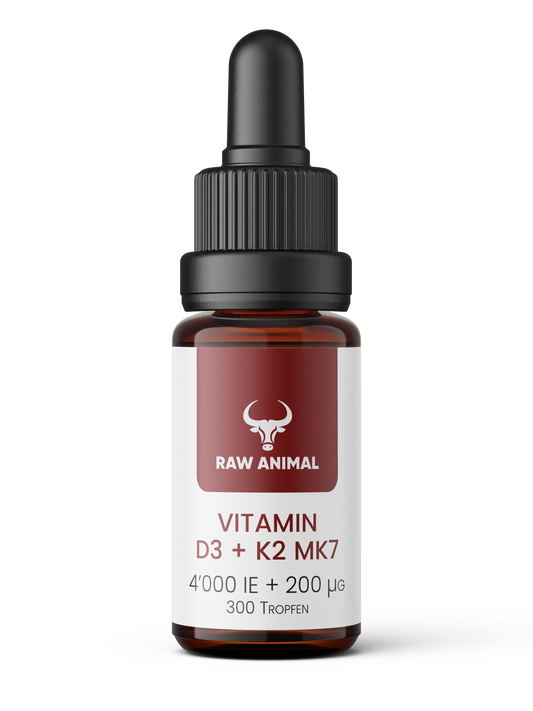Your heart health depends not only on exercise and diet – your hormones also play a key role. According to American biologist Ray Peat, the hormone progesterone in particular has a profound effect on your cardiovascular system. While many medical approaches emphasize estrogen, Peat shows that progesterone can be a crucial protective factor for your heart.
Thesis: If you want to strengthen your heart function in the long term, you should not only pay attention to external factors, but also specifically support your hormone balance – especially progesterone. This article shows you how to do this and why Ray Peat's hormone-based approach is so revolutionary.
Progesterone: The underestimated heart protector
Many people associate progesterone only with the female cycle—but this hormone has many more functions, especially with regard to your heart health . According to Ray Peat, progesterone has anti-inflammatory and vasodilatory effects and protects the heart muscle cells from harmful influences. It is, in a sense, a natural antidote to the negative effects of stress hormones and estrogen dominance , which can place a great strain on the heart.
A healthy progesterone level supports optimal cardiovascular function, regulates blood pressure, and improves tissue oxygenation. Peat emphasizes that many heart problems in women increase particularly after menopause—that is, precisely when progesterone levels drop sharply and the ratio to estrogen becomes unbalanced. This hormonal imbalance can contribute to symptoms such as palpitations, blood pressure fluctuations, or even arrhythmias.
Progesterone also plays a role in men. Although levels are naturally lower than in women, estrogen dominance —for example, due to environmental toxins or liver stress—can also reduce the protective effect of progesterone. Studies suggest that progesterone has antioxidant properties that can neutralize free radicals in heart tissue.
Estrogen dominance and its consequences for your heart
A hormonal imbalance—especially estrogen dominance —can have serious consequences for your heart health. While estrogen is often portrayed as a "protective factor" for women's hearts, Ray Peat warns of the long-term consequences of chronically elevated estrogen levels, especially when progesterone levels are simultaneously too low. This imbalance can promote inflammatory processes in the body, increase blood clotting, and negatively affect heart rate.
According to a study published in the Journal of the American Heart Association (2020), the risk of cardiovascular disease in postmenopausal women increases by over 30% , which is related to the sudden decline in progesterone and the relative dominance of estrogen. Ray Peat interprets these hormonal changes as an important risk factor that is often underestimated in conventional medicine.
Typical symptoms of estrogen dominance that can also affect your heart are:
-
Heart palpitations or palpitations
-
Blood pressure fluctuations
-
Water retention (which places additional strain on the heart)
-
Nervousness, sleep disorders and inner restlessness
According to Peat, these symptoms often arise from a lack of progesterone-mediated protection. Estrogen also stimulates the release of histamine – a biochemical process that can lead to vasoconstriction and increased cardiac stress. In this context, Peat emphasizes the importance of considering not only estrogen levels, but especially the relationship between estrogen and progesterone .
Particularly alarming: A meta-analysis of the Endocrine Reviews (2016) found that over 65% of women aged 35 to 50 show signs of estrogen dominance – a silent development that can also affect the heart in the long term.
The thyroid as a heart engine: Why your hormones have more influence than you think
Your thyroid hormones not only control your metabolism, but also directly influence the performance and health of your heart. Ray Peat describes the thyroid as a kind of "biological accelerator" for the entire organism—when it's functioning optimally, your heart also functions more efficiently, rhythmically, and with greater resilience.
❓ Frequently asked question: What does the thyroid have to do with the heart?
The thyroid produces the hormones T3 (triiodothyronine) and T4 (thyroxine) , which are crucial for energy production in every cell—including heart muscle cells. Studies show that a mild deficiency of T3 is associated with a slowed heart rate, reduced cardiac output, and an increased risk of heart failure ( European Journal of Endocrinology, 2019 ).
Ray Peat goes even further: He believes that a suboptimal metabolic function – for example, due to latent hypothyroidism – is one of the main causes of chronic heart problems. Many of these conditions remain undetected for a long time because common blood tests like TSH alone are not sufficient to detect functional disorders. Peat therefore recommends paying particular attention to symptoms such as sensitivity to cold, dry skin, chronic fatigue, or a slow heart rate.
❗ Concerns: “I don’t have a diagnosed thyroid condition – does this even affect me?”
Yes, because many people exhibit subclinical symptoms of hypothyroidism without immediate laboratory tests. Especially in cases of persistent stress or an unbalanced diet, thyroid activity can decrease, which also negatively affects your heart function in the long term. According to Ray Peat, even small fluctuations in T3 levels can cause your heart to function less efficiently and become more susceptible to arrhythmias or circulatory problems.
🧠 Ray Peat's recommendation:
Peat advocates gentle reactivation of the thyroid through a pro-metabolic diet (more on this in the next section), adequate calorie intake, and the avoidance of chronic stress. He emphasizes that thyroid function should not be viewed in isolation, but always in conjunction with other hormones—especially progesterone and cortisol .
Pro-metabolic nutrition: How to strengthen your heart and hormones at the same time
If you want to support your heart health hormonally, Ray Peat recommends a pro-metabolic diet . This term describes a diet that specifically stimulates your cellular metabolism while promoting hormonal balance—particularly by supporting progesterone and thyroid hormones .
🔍 What does “pro-metabolic” mean?
A functioning metabolism ensures that every cell—including your heart muscle cells—has sufficient energy. According to Ray Peat, certain foods promote this condition:
-
Fruit juices (especially orange juice): provide quickly available glucose, reduce stress hormones
-
Coconut oil : supports thyroid function, has an anti-inflammatory effect
-
Gelatin (e.g. from bone broth): provides glycine, which relieves the adrenal glands and has an anti-inflammatory effect
-
Dairy products : provide calcium and support progesterone production
🧪 Study situation:
According to a study in the Journal of Clinical Endocrinology & Metabolism (2021), a diet with adequate calories, high-quality proteins and low in PUFAs (polyunsaturated fatty acids) has a positive effect on hormone status and heart rate variability – both important markers of a healthy heart.
Ray Peat criticizes severely restricted calorie diets, which can lead to hypothyroidism and progesterone deficiency in the long term. His recommendation: Eat regularly, avoid fasting periods, and focus on nutrient-dense, easily digestible foods.
Conclusion: Your heart needs more than just exercise – it needs hormonal balance
Your heart health is more closely linked to your hormone balance than most people realize. Ray Peat's holistic approach impressively demonstrates how progesterone , thyroid hormones , and a pro-metabolic diet can act as key levers to relieve stress on your heart and increase your vitality.
Here are the key findings at a glance:
-
Progesterone protects your heart from stress, inflammation and arrhythmias – an often underestimated factor.
-
Estrogen dominance can significantly increase the risk of cardiovascular disease, especially in women during hormonal transitions.
-
A healthy thyroid is crucial for energy, blood pressure regulation and heart rate.
-
With a targeted, pro-metabolic diet you can actively strengthen your hormone balance.
-
The Ray Peat diet is easy to implement and offers concrete tools for more vitality.
👉 Take your heart health into your own hands: Pay attention to your hormonal signals, critically question conventional recommendations, and experiment with Ray Peat's principles. You'll feel more energy, stability, and well-being emerge – without extreme diets or medication.
If you want to delve deeper, subscribe to our newsletter or share this post with someone who wants to do something good for their heart. Your body will thank you. ❤️
This article is based on the original article by Ray Peat: https://raypeat.com/articles/articles/heart-hormones.shtml





